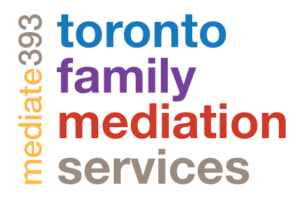Mediating With Your Mental Health In Mind Series – Part 4
10.16.2020
By Raheena Dahya, TFMS Roster Mediator
This series is designed to provide you with some tips and activities you can do to help manage your mental health while going through the family law process.
Reconnect to a Disconnection…
Johann Hari’s book Lost Connections highlights different types of disconnection that may contribute to one’s experience of anxiety and/ or depression. Here is a list of some of the types of disconnection and some corresponding self-care ideas to support you in reconnecting with these themes.1
Meaningful work
Begin an activity or hobby that gives you joy and a sense of meaningful work.
Other People
Connect with friends or family with whom you have a good relationship and with whom you usually feel good on a regular basis.
Don’t wait until you’re feeling low to reach out. Sometimes when you’re down, it might be hard to think of who these people might be, so when you’re feeling calm, make a list of friends and family and in which parts of your life they make you feel good. You can turn to this list when you don’t know whom to reach out to when you’re feeling low.
Try something new where you might meet new people.
Meaningful Values
Hari talks about “junk values”, which are socially normalized concepts that don’t necessarily bring value to our lives.
Try looking up different exercises online to identify your core values. Once you distill your list to your top 5 values, take a few deep breaths and make a list of some things you can do to satisfy each of these values. List at least three per value: one that you can do today, one you can do this week, and one you can do this month.
Childhood Trauma
If you have experienced childhood trauma, connect with a counselor or service provider who can assist you in working through your trauma. (See point 8, below.) Pennebakers’s research found that the act of keeping a traumatic event secret and not discussing it could be more damaging than the actual event.2
If it is too difficult to discuss, try to express it in some other fashion such as creative writing or art. According to Pennebaker, there is significant evidence that “the act of writing about traumatic experience for as little as fifteen or twenty minutes a day for three or four days can produce measurable changes in physical and mental health.”
Respect
Sometimes we don’t feel respected by others. Take a few deep breaths and make a list of things you respect about yourself. Take some time to appreciate these qualities that you have.
The Natural World
Consider getting a plant for your home or taking a walk in a nearby park — somewhere with some greenery or water — where you can connect with nature.
A Secure Future
Everyone struggles with the fear of not having a secure future from time to time. This also relates to what Brown calls a “culture of scarcity” and “the “never enough” problem. According to Brown, shame thrives in a culture of scarcity so cultivating a shame resilience practice can be very useful. See part 5 of this series to learn more about shame resilience.
Meditation is a great way to ground yourself in times of insecurity or anxiety. You can look up some free apps online and find which one suits your personality and needs.
References:
- Hari, Johann. 2018. Lost Connections: Uncovering the Real Causes of Depression – And the Unexpected Solutions. New York, NY: Bloomsbury USA.
- Pg. 82, Brown, Brené. 2012. Daring greatly: how the courage to be vulnerable transforms the way we live, love, parent, and lead. New York, NY: Gotham Books. Citing Pennebaker, James W. 2004. Writing to heal: a guided journal for recovering from trauma and emotional upheaval. Oakland, CA: New Harbinger Publisher.
- pgs. 24 & 26, Brown, Brené. 2012. Daring greatly: how the courage to be vulnerable transforms the way we live, love, parent, and lead. New York, NY: Gotham Books.,

